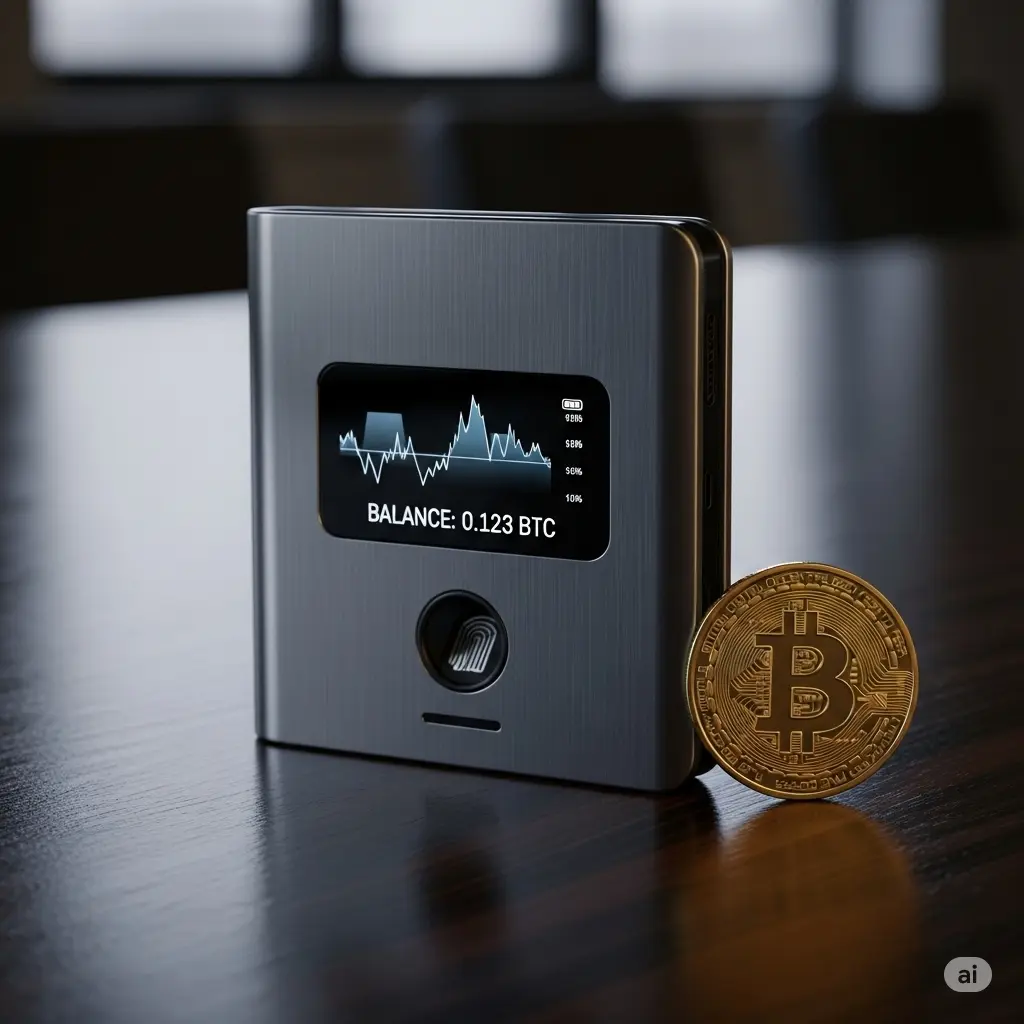The Complete Guide to the Best Secure Crypto Wallets for Safe Bitcoin & ETH Storage in 2025
Cryptocurrency continues to reshape the financial landscape, with Bitcoin (BTC) and Ethereum (ETH) leading the charge as the most popular digital assets. As more people dive into the crypto world, one question remains critical: How do you keep your investments safe? The answer lies in choosing a secure crypto wallet. With cyber threats like hacking and phishing on the rise, safeguarding your Bitcoin and ETH is more important than ever. At Global Crypto Sports, we’re committed to helping you navigate the crypto space with confidence, and this guide will walk you through everything you need to know about the best crypto wallets in 2025 for secure storage.
In this comprehensive 2500+ word article, we’ll explore what makes a crypto wallet secure, the differences between hot wallets and cold wallets, the importance of seed phrases, and actionable tips for protecting your assets. Whether you’re a beginner or an intermediate investor, this guide will empower you to make informed decisions about crypto wallet security. Let’s dive in!
Why Secure Crypto Wallets Matter in 2025
The crypto market is booming, with Bitcoin hitting new all-time highs and Ethereum powering decentralized finance (DeFi) applications. However, this growth has attracted cybercriminals, making crypto wallet security a top priority. A secure wallet acts as your vault, protecting your private keys—the codes that grant access to your funds on the blockchain. Without a reliable wallet, your Bitcoin and ETH could be vulnerable to theft or loss.
At Global Crypto Sports, we’ve seen a surge in interest around safe storage solutions, especially as more investors explore decentralized wallets and hardware wallets to mitigate risks. With new advancements in wallet technology and rising cyber threats, choosing the best crypto wallet in 2025 is a critical step for every investor. This article will break down the options, highlight key features, and provide practical advice to ensure your assets stay safe.

Understanding Key Crypto Terms
Before we dive into the specifics of secure crypto wallets, let’s clarify some essential terms to make this guide beginner-friendly:
- Blockchain: A decentralized, digital ledger that records all cryptocurrency transactions across a network of computers. It ensures transparency and security for Bitcoin and ETH.
- Private Key: A secret code that allows you to access and manage your crypto. Losing it means losing access to your funds.
- Seed Phrase: A series of 12-24 words that acts as a backup for your wallet. It’s crucial for recovering your funds if your device is lost or damaged.
- Hot Wallet: A wallet connected to the internet, such as a mobile or software wallet, designed for convenience but potentially less secure.
- Cold Wallet: An offline wallet, like a hardware wallet, offering maximum security by keeping private keys away from the internet.
- Decentralized Wallet: A wallet where you control your private keys, not a third party, aligning with the ethos of decentralization in crypto.
- DeFi: Decentralized finance, a system of financial applications built on blockchain, often powered by Ethereum.
- Web3: The next generation of the internet, focused on decentralization, blockchain, and user control over data.
With these terms in mind, let’s explore the best secure crypto wallets for storing Bitcoin and ETH.
Types of Crypto Wallets: Hot vs. Cold Wallets
When choosing a secure crypto wallet, the first decision is whether to go with a hot wallet or a cold wallet. Each type has unique features, benefits, and risks. Below, we break down the options to help you decide.
Hot Wallets: Convenience with Trade-Offs
Hot wallets are digital wallets connected to the internet, making them ideal for frequent trading or small transactions. They include mobile wallets, desktop wallets, and web-based wallets.
Pros of Hot Wallets
- Accessibility: Access your funds anytime, anywhere, using a smartphone or computer.
- User-Friendly: Ideal for beginners due to intuitive interfaces and easy setup.
- Cost-Effective: Most hot wallets are free or low-cost compared to hardware wallets.
- Integration with DeFi: Many hot wallets support DeFi apps and decentralized exchanges (DEXs).
Cons of Hot Wallets
- Security Risks: Internet connectivity makes them vulnerable to hacking, phishing, and malware.
- Limited Control: Some hot wallets are custodial, meaning a third party controls your private keys.
- Not Ideal for Large Holdings: Best suited for smaller amounts due to security concerns.
Examples of Hot Wallets:
- MetaMask: A popular mobile wallet and browser extension for Ethereum and ERC-20 tokens. It’s widely used for DeFi and Web3 applications.
- Coinbase Wallet: A non-custodial wallet offering easy access to Bitcoin, ETH, and other cryptocurrencies.
- Trust Wallet: A mobile wallet supporting multiple blockchains, ideal for beginners.
Cold Wallets: Maximum Security for Long-Term Storage
Cold wallets are offline storage solutions, such as hardware wallets or paper wallets, designed for maximum security. They’re perfect for long-term investors or those holding significant amounts of Bitcoin and ETH.
Pros of Cold Wallets
- Enhanced Security: Offline storage protects against online threats like hacking.
- Full Control: You hold your private keys, ensuring no third-party access.
- Ideal for Large Holdings: Perfect for storing high-value assets securely.
- Durable: Many hardware wallets are built to withstand physical damage.
Cons of Cold Wallets
- Less Convenient: Requires physical access to the device for transactions.
- Upfront Cost: Hardware wallets typically cost $50-$200.
- Learning Curve: May be complex for beginners unfamiliar with seed phrases or device setup.
Examples of Cold Wallets:
- Ledger Nano X: A leading hardware wallet with Bluetooth support and a user-friendly interface. It supports Bitcoin, ETH, and thousands of other cryptocurrencies.
- Trezor Model T: An open-source hardware wallet known for its robust security features and touchscreen display.
- Paper Wallets: A printed record of your private keys and seed phrase, offering ultimate offline security (but requires careful storage).
Top Secure Crypto Wallets for Bitcoin and ETH in 2025
With so many options available, how do you choose the best crypto wallet in 2025? Below, we highlight the top secure crypto wallets for Bitcoin and ETH, based on security, usability, and features.
1. Ledger Nano X
The Ledger Nano X is widely regarded as the gold standard for hardware wallets. Its offline storage and advanced encryption make it a top choice for secure Bitcoin and ETH storage.
- Key Features:
- Supports over 5,500 cryptocurrencies, including BTC and ETH.
- Bluetooth connectivity for mobile use.
- Secure Element chip for enhanced protection.
- User-friendly Ledger Live app for managing assets.
- Why It’s Secure: Private keys remain offline, and the device requires physical confirmation for transactions.
- Best For: Long-term investors and those with significant holdings.
2. Trezor Model T
The Trezor Model T is another top-tier hardware wallet, known for its open-source software and robust security features.
- Key Features:
- Touchscreen for easy navigation.
- Supports Bitcoin, ETH, and over 1,000 other assets.
- Open-source firmware for transparency.
- Seed phrase backup for recovery.
- Why It’s Secure: Offline storage and open-source code allow community auditing for vulnerabilities.
- Best For: Security-conscious users who value transparency.
3. MetaMask
MetaMask is a leading hot wallet for Ethereum-based assets, offering a browser extension and mobile wallet for seamless DeFi integration.
- Key Features:
- Non-custodial, giving you full control over private keys.
- Supports ETH and ERC-20 tokens.
- Integrates with DeFi platforms and NFT marketplaces.
- Easy wallet backup with a 12-word seed phrase.
- Why It’s Secure: Non-custodial design ensures you control your keys, but it requires careful protection against phishing.
- Best For: DeFi enthusiasts and active traders.
4. Coinbase Wallet
The Coinbase Wallet is a non-custodial hot wallet that’s beginner-friendly and supports both Bitcoin and ETH.
- Key Features:
- Simple interface for new users.
- Supports multiple blockchains.
- Wallet backup via seed phrase or cloud storage (encrypted).
- Integrates with the Coinbase exchange for easy transfers.
- Why It’s Secure: Non-custodial with optional cloud backup, but users must protect against online threats.
- Best For: Beginners and intermediate investors.
5. Trust Wallet
Trust Wallet is a versatile mobile wallet that supports Bitcoin, ETH, and thousands of other tokens.
- Key Features:
- Non-custodial with full control over private keys.
- Built-in DEX for swapping tokens.
- Supports staking for certain cryptocurrencies.
- Easy seed phrase recovery.
- Why It’s Secure: Decentralized design and strong encryption, but requires vigilance against phishing.
- Best For: Mobile users and DeFi participants.

Crypto Wallet Security: Best Practices for Safe Storage
No matter which secure crypto wallet you choose, following best practices is essential to protect your Bitcoin and ETH. Here are actionable tips for beginners and intermediate investors:
1. Safeguard Your Seed Phrase
Your seed phrase is the key to recovering your wallet. Without it, you could lose access to your funds permanently.
- Do:
- Write down your seed phrase on paper and store it in a secure location, like a safe or safety deposit box.
- Use a metal backup device (e.g., Billfodl) for durability against fire or water damage.
- Split your seed phrase into parts and store them in separate, secure locations.
- Don’t:
- Store your seed phrase digitally (e.g., on your phone or computer).
- Share your seed phrase with anyone, including customer support.
2. Use Two-Factor Authentication (2FA)
For hot wallets, enable 2FA to add an extra layer of security. Use authenticator apps like Google Authenticator or Authy instead of SMS-based 2FA, which can be vulnerable to SIM-swapping attacks.
3. Keep Software Updated
Regularly update your wallet’s software or firmware to patch vulnerabilities. For hardware wallets like Ledger or Trezor, use official apps to install updates securely.
4. Beware of Phishing Scams
Phishing is a common tactic used to steal private keys or seed phrases. Always verify URLs, avoid clicking suspicious links, and double-check email senders.
5. Use a Dedicated Device for Crypto
For maximum security, use a dedicated device (e.g., a separate computer or phone) for crypto transactions. Avoid using public Wi-Fi or shared devices.
6. Regularly Back Up Your Wallet
Perform wallet backups to ensure you can recover your funds if your device is lost or damaged. Store backups securely and test your seed phrase periodically.
Real-World Examples: Lessons from Crypto Wallet Hacks
To underscore the importance of crypto wallet security, let’s look at two real-world examples:
- The 2021 MetaMask Phishing Attack: Scammers created fake MetaMask websites, tricking users into entering their seed phrases. Thousands of users lost funds due to phishing. Lesson: Always verify the URL of wallet websites and never share your seed phrase.
- The 2020 Ledger Data Breach: Hackers accessed Ledger’s customer database, exposing email addresses and personal information. While private keys remained secure, the breach led to phishing attempts. Lesson: Use hardware wallets for offline storage and ignore unsolicited requests for your seed phrase.
These cases highlight the need for vigilance and choosing a secure crypto wallet with robust protections.
Pros and Cons of Secure Crypto Wallets
Benefits of Secure Crypto Wallets
- Peace of Mind: Knowing your Bitcoin and ETH are protected from cyber threats.
- Control: Decentralized wallets give you full ownership of your private keys.
- Versatility: Options like Ledger Nano X and MetaMask support multiple cryptocurrencies.
- Recovery Options: Seed phrases ensure you can recover funds if your device is lost.
- DeFi Integration: Hot wallets like MetaMask enable participation in DeFi and Web3 ecosystems.
Potential Risks
- Human Error: Losing your seed phrase or sharing it with scammers can result in permanent loss.
- Cost: Hardware wallets require an upfront investment, which may deter beginners.
- Complexity: Setting up and securing a wallet can be daunting for new users.
- Online Vulnerabilities: Hot wallets are susceptible to hacking if not properly secured.
Actionable Advice for Beginners and Intermediate Investors
For Beginners
- Start with a Hot Wallet: If you’re new to crypto, try a beginner-friendly mobile wallet like Coinbase Wallet or Trust Wallet for small amounts.
- Learn About Seed Phrases: Understand how to securely store and never share your seed phrase.
- Practice with Small Amounts: Test your wallet with a small amount of Bitcoin or ETH before transferring larger sums.
- Follow Global Crypto Sports: Stay updated on wallet reviews and security tips at Global Crypto Sports.
For Intermediate Investors
- Invest in a Hardware Wallet: Upgrade to a Ledger Nano X or Trezor Model T for secure, long-term storage.
- Diversify Storage: Use a combination of hot wallets for trading and cold wallets for savings.
- Explore DeFi Safely: Use MetaMask or Trust Wallet to interact with DeFi platforms, but research projects thoroughly.
- Monitor Security Trends: Follow Global Crypto Sports for updates on emerging threats and wallet innovations.
Frequently Asked Questions (FAQ)
1. What is the most secure crypto wallet for Bitcoin and ETH?
The Ledger Nano X and Trezor Model T are among the most secure options due to their offline storage and advanced encryption. For hot wallets, MetaMask and Coinbase Wallet offer strong security with non-custodial designs.
2. Should I use a hot wallet or a cold wallet?
Use a hot wallet for convenience and small transactions, and a cold wallet for long-term storage or large holdings. Combining both can balance accessibility and security.
3. How do I protect my seed phrase?
Write your seed phrase on paper or a metal backup device and store it in a secure location, like a safe. Never store it digitally or share it with anyone.
4. Can I recover my funds if I lose my wallet?
Yes, if you have your seed phrase, you can recover your funds on a new device. Always keep multiple secure backups of your seed phrase.
5. Are hardware wallets worth the cost?
For investors with significant Bitcoin or ETH holdings, hardware wallets like Ledger Nano X are worth the investment due to their superior security.
6. What are the risks of using a hot wallet?
Hot wallets are vulnerable to hacking, phishing, and malware. Always enable 2FA, update software, and avoid suspicious links.
7. How can Global Crypto Sports help me stay informed?
Global Crypto Sports provides the latest news, reviews, and security tips for crypto wallets and blockchain technology. Visit our site for updates!
Conclusion: Stay Safe and Invest Wisely
Choosing a secure crypto wallet is the foundation of protecting your Bitcoin and ETH investments. Whether you opt for the convenience of a hot wallet like MetaMask or the robust security of a cold wallet like Ledger Nano X, understanding your options and following best practices is key. At Global Crypto Sports, we’re here to guide you through the evolving world of cryptocurrency with expert insights and actionable advice.
Take action today: Research the wallets mentioned in this guide, secure your seed phrase, and start protecting your assets. Stay informed by visiting Global Crypto Sports for the latest crypto news and wallet reviews. Have thoughts or questions? Share this post with fellow investors and join the conversation on social media!
Invest wisely, stay secure, and let’s build a safer crypto future together!
